Back in July 1841, a Baptist missionary had a bright idea while walking from Market Harborough to Leicester to attend a temperance meeting. His name was Thomas Cook.
How about arranging tours, using newfangled trains, to make it easier for likeminded people to get about, he pondered as he plodded along. So he did — and there began package tourism in the UK, as Cook took 500 people 11 miles from Leicester to Loughborough for a teetotal rally.
Included in the price of one shilling were tea, ham sandwiches and music by a brass band. Crowds lined the train tracks to cheer them on.
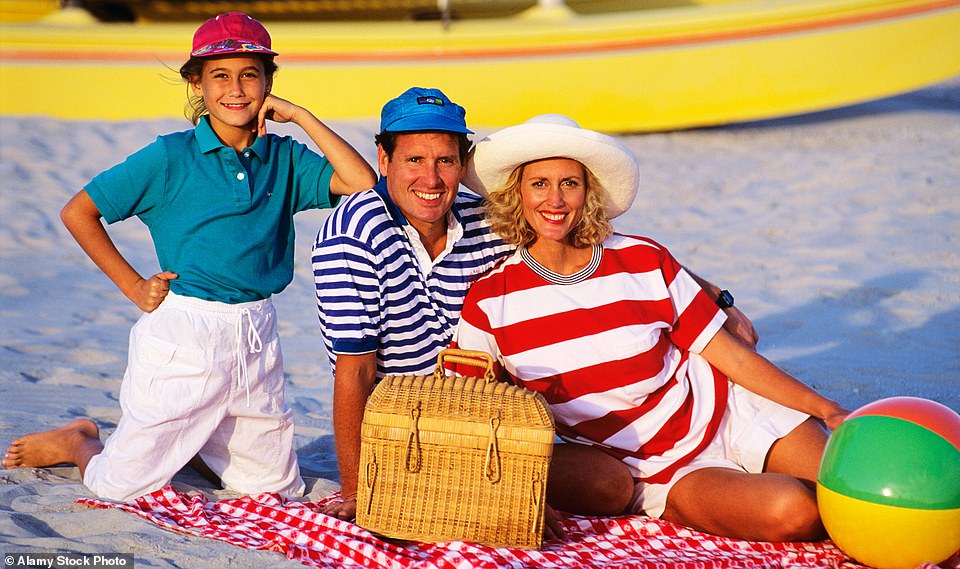
Thomas Cook was the pioneer of package tourism in the UK after having the idea to arrange a tour in 1841. As the decades went by the concept became increasingly popular, with the arrival of cheap and speedy air travel turbo-boosting the numbers
FIRST BROCHURES: Mid-1840s
After Thomas Cook’s Loughborough trip, he branched out to Wales and Scotland, producing journey ‘handbooks’ (the first travel brochures) proclaiming the delights of early staycations.
EUROPE HERE WE COME: 1850s
By 1851, Cook was sending 150,000 people to London’s Great Exhibition. By 1855, he led a tour from Harwich to Antwerp, continuing to Brussels, Cologne, Heidelberg, Strasbourg and Paris for an International Exhibition. Swiss and Italian trips followed, with ‘reps’ wearing blue jackets with gold buttons.
NILE CRUISES: 1860s
The first Thomas Cook High Street shop opened in Fleet Street in 1865. In 1869, Cook broadened his horizons with trips to Egypt and the Holy Land. Two Nile steamers were booked for the passage to Luxor, where Cook went for a swim and was almost swept away: ‘My first and last attempt at bathing in the Nile.’
AROUND THE WORLD: 1870s
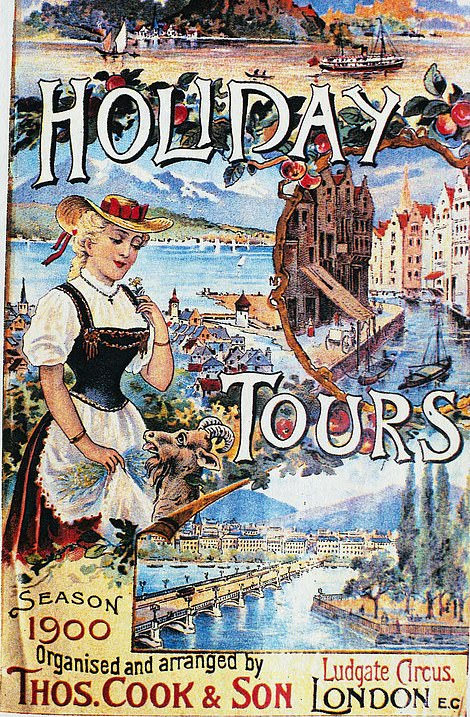
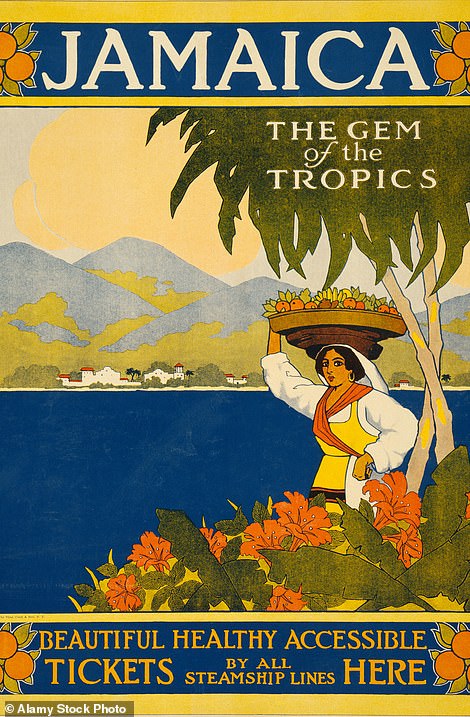
The first-ever travel brochures came in the 1840s, proclaiming the delights of staycations. By the early 20th century trips to exotic locations were being advertised
HOW HOLIDAYS ARE PROTECTED
Package holidays offer the best form of legal and financial protection. Under the Package Travel Regulations, if a holiday is cancelled you are due a refund within 14 days. You’re also covered if the company you’re due to travel with goes out of business or if you are not provided with the holiday you paid for.
For example, if something isn’t provided or as promised, the company will be legally obliged to sort it out for you.
Advertisement
In 1872 the ever-busy Cook arranged an extraordinary 222-day round-the-world tour. After a steamship to New York, customers took the train to San Francisco and ships to China, India and Egypt on the way home. Meanwhile, in 1874, an early form of travellers’ cheques was created.
OFF TO THE ALPS: 1890s
The first package ski holiday was to Chamonix, France, in 1898-99 organised by Dr Henry Lunn, a former Methodist minister. Lunn had become a rival to Thomas Cook, then run by descendants (Thomas having died in 1892), also organising large group trips to Rome. Some consider him the first budget tour operator.
APRES SKI INVENTED: 1900s
In 1902-03 Lunn sent 400 skiers to the Swiss resort of Adelboden after founding the Public Schools Alpine Sports Club, ‘a congenial society of people’. This expanded to Murren and Wengen, where apres ski began.
UP IN THE AIR: 1920s
Thomas Cook began flights on Imperial Airways from Cricklewood, London, to the Continent in 1919, but in 1927 a Fokker Universal plane with wicker seats was chartered from New York to Chicago to attend a Jack Dempsey boxing match. Participants were shipped to New York.
BUTLINS AND FRANCE: 1930s
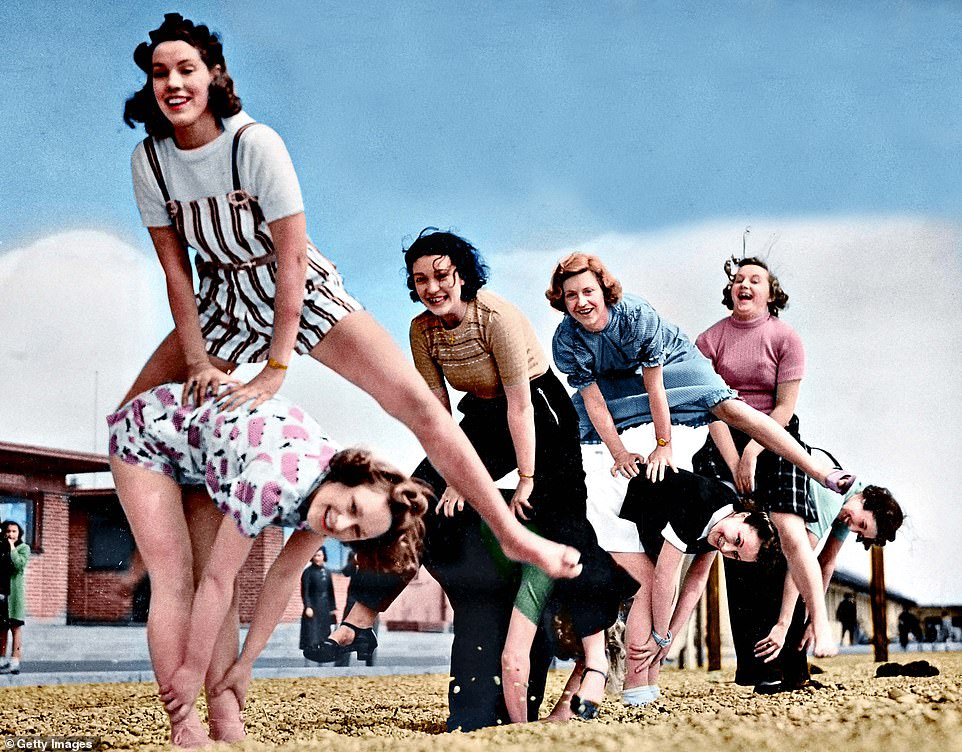
The Holidays With Pay Act, introduced in the UK in 1938, ensured workers would get one week’s paid holiday a year. This image shows hi-jinks on a beach in Folkestone in 1940
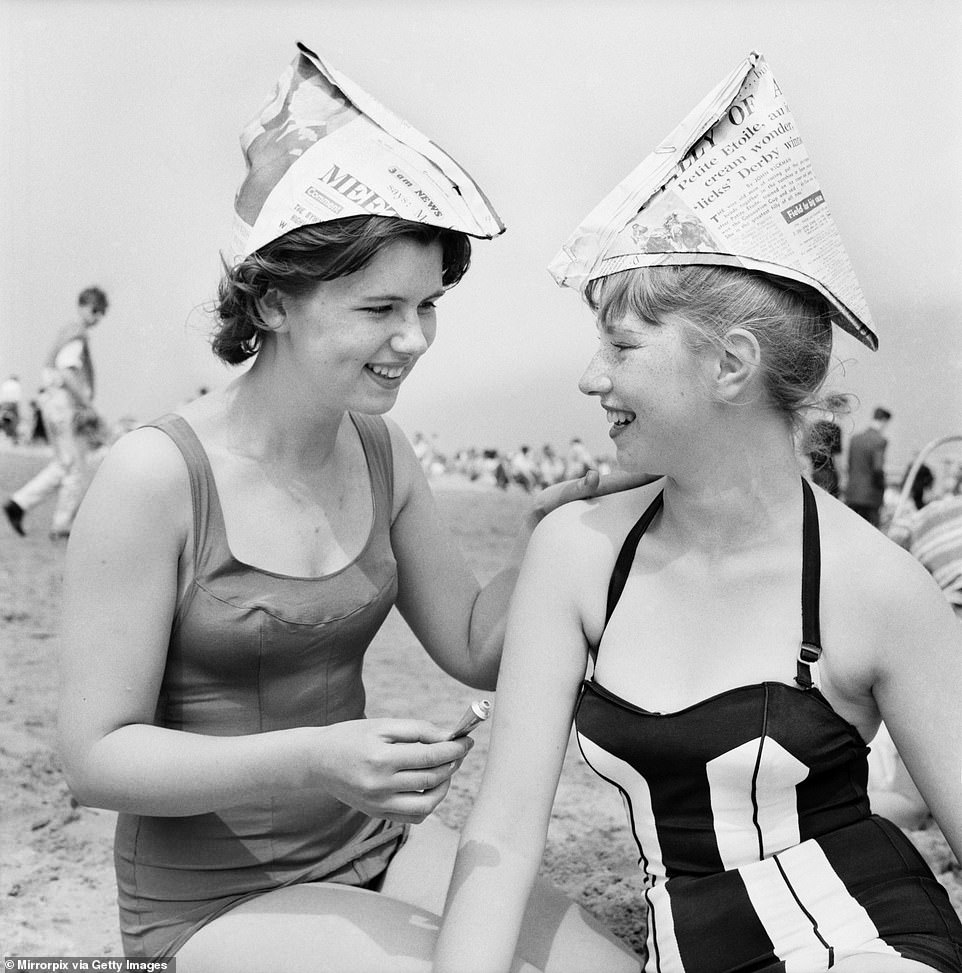
One million Britons travelled abroad in 1950 as Vladimir Raitz, a Russian émigré, set up Horizon Holidays the same year
The first Butlins, set up by Billy Butlin, opened in Skegness, Lincolnshire, in 1936 for 35 shillings a week full board. This was just ahead of the Holidays With Pay Act 1938, ensuring one week’s paid holiday a year. Meanwhile, others were catching Thomas Cook charter flights to the French Riviera by 1939 — while ski companies Inghams and Erna Low offered Snow Sports Specials trains to the Alps.
MASS TOURISM TO EUROPE: 1950s
Vladimir Raitz, a Russian émigré, set up Horizon Holidays in 1950 with Gatwick to Corsica flights on Douglas DC-3s taking six hours, rather than 48 hours by ship, on what are considered the first mass-market packages. The price was £32 including meals and wine. Sardinia and the Costa Brava followed. One million Britons travelled abroad in 1950.
CRAZY FOR COSTAS: 1960s
Rapid hotel construction under Franco and the first commercial passenger jetliners, Boeing 707s, meant the journey to Majorca was soon two hours. In 1965, Thomson Holidays began (later bought by TUI). Alicante Airport opened in 1967, accelerating development in Benidorm, where 100 hotels were built in a decade.
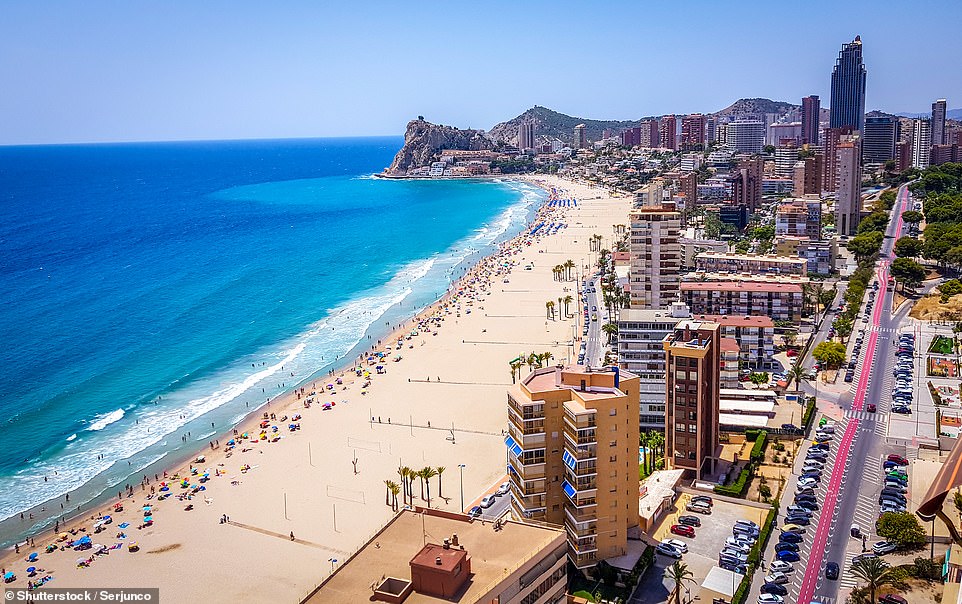
Alicante Airport opened in 1967, accelerating development in Benidorm (pictured), where 100 hotels were built in a decade
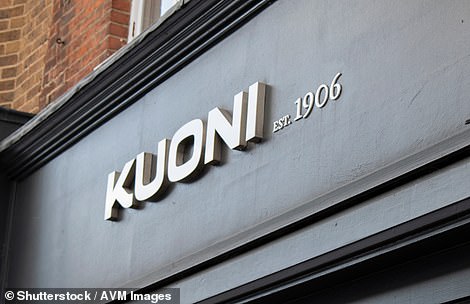
In the 1970s, Kuoni offered new Boeing 747 jumbo jets with 400-plus seats for trips to the USA, Kenya and Brazil
HELLO JUMBOS: 1970s
Kuoni, a Swiss company, offered new Boeing 747 jumbo jets with 400-plus seats for trips to the USA, Kenya and Brazil. Thomson began flying to the Caribbean, while Laker Holidays, founded by the swashbuckling entrepreneur Freddie Laker, featured Miami.
NEW REGULATIONS: mid-1970s
The Algarve in Portugal and Greece began to feature on itineraries, with Sunvil Holidays and Olympic Holidays specialising in Greece and its islands. Competition became cut-throat and several tour operators collapsed, including Court Line in 1974. New regulations were introduced to protect holidaymakers.
HEYDAY YEARS: 1980s
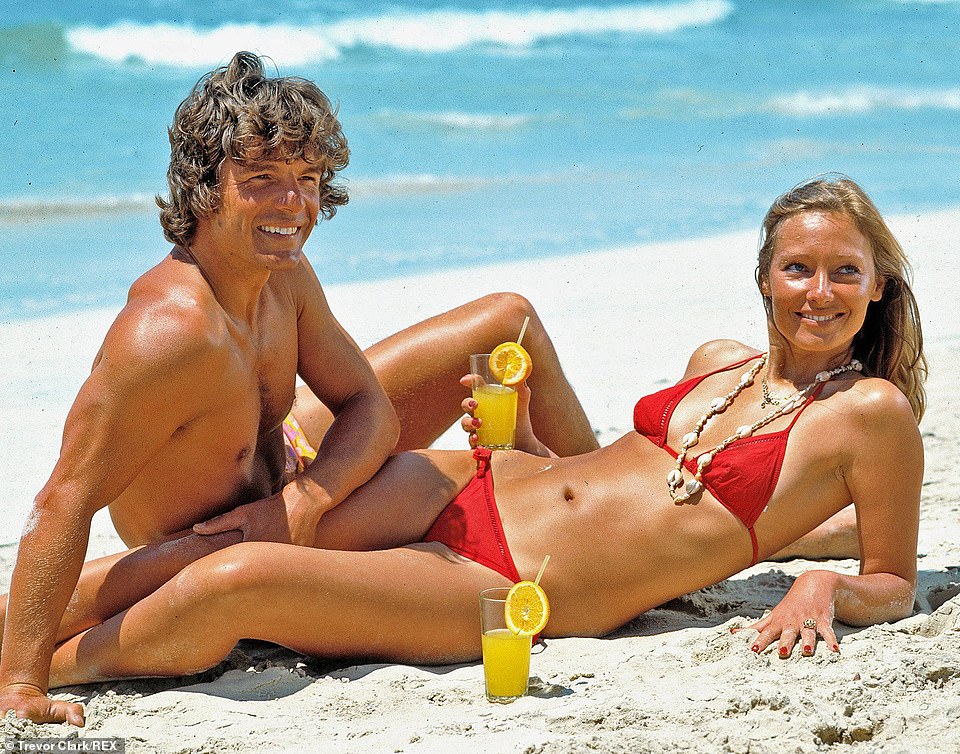
Feeling the heat: High Street travel agencies sprang up during the 1980s and package holiday sales soared
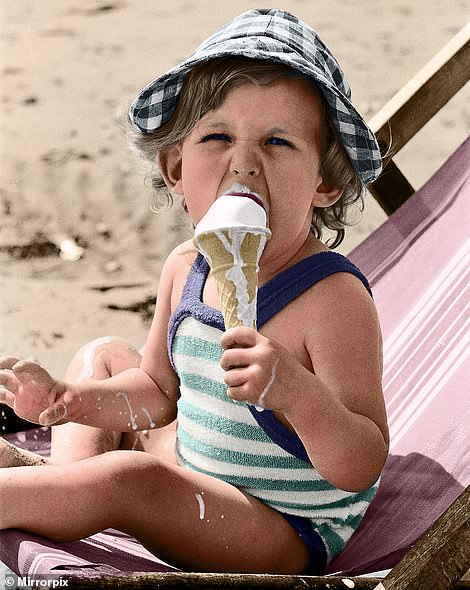
Uncertainty caused by the pandemic has turned people back to package holidays, which provide financial protection and refunds by law
Package holiday sales soared as price wars between Thomson and Intasun raged. High Street travel agencies sprang up.
CLOUDS ON HORIZON: 1990s
Operators prospered, with 15 million Britons taking package trips in 1994. Club 18-30 courted controversy with ‘Beaver Espana’ and ‘Girls. Can we interest you in a package holiday?’ adverts; the latter accompanied by a picture of a man wearing boxer shorts. In 1995 easyJet began flights from Luton and Gatwick for £29.99. By 1997 they were being sold on the internet — beginning a new era.
DIY HOLIDAYS: 2000s
No-frills airlines such as easyJet and Ryanair undercut traditional carriers, sometimes with flights for 1p (plus tax). Holidaymakers realised they could book their own trips easily.
TROUBLED WATERS: 2010s
Tour operators felt the pinch. Ryanair was Europe’s biggest airline in 2018-2019, carrying 152million passengers a year (up from 2million in 1995). Booking.com and Airbnb became major players for hotels and apartments. In 2019, Thomas Cook went bust, but has since been reborn under Chinese ownership.
BACK TO THE FUTURE: 2020s
Uncertainty caused by the pandemic turns people back to package holidays, which provide financial protection and refunds by law. Some now forecast a package holiday revival.
PHEW! THESE COSTA LOTTA… Take the Trans-Siberian railway from Vladivostock to Moscow, via Mongolia, on a 15-day trip in premium carriages on the Golden Eagle Luxury train. Expect thrilling day trips and, in the evenings, chefs will prepare lavish dinners. From £12,995pp (regent-holidays.co.uk).Enjoy an Antarctica adventure at Whichaway Camp, the only luxury accommodation on the continent, which has state-of-the-art sleeping domes. Expect trips to penguin colonies and the Amundsen-Scott South Pole station and, naturally, six course tasting menus each evening. From £65,416pp (pelorusx.com).Have Abercombie and Kent founder Geoffrey Kent accompany you on a 26-day visit to lesser-known countries by private jet. That means Eritrea, Benin, in Africa, Japan, Vietnam, Laos, India and Brazil before some beach-flopping in the Maldives and a grand finale in New Orleans for Mardi Gras. From £116,306pp, (abercombiekent.com).Visit Zambia, Botswana and South Africa on a ten-day tour with expert guides and private jet transfers organised by National Geographic. Experience Victoria Falls by air, try canoe safaris and bush walks while seeing elephants, lemurs, cheetahs and lions. From £15,445pp (travelwithnatgeo.co.uk).
Advertisement
Source link : https://www.dailymail.co.uk/travel/travel_news/article-9820857/The-fascinating-history-package-holidays-UK.html












